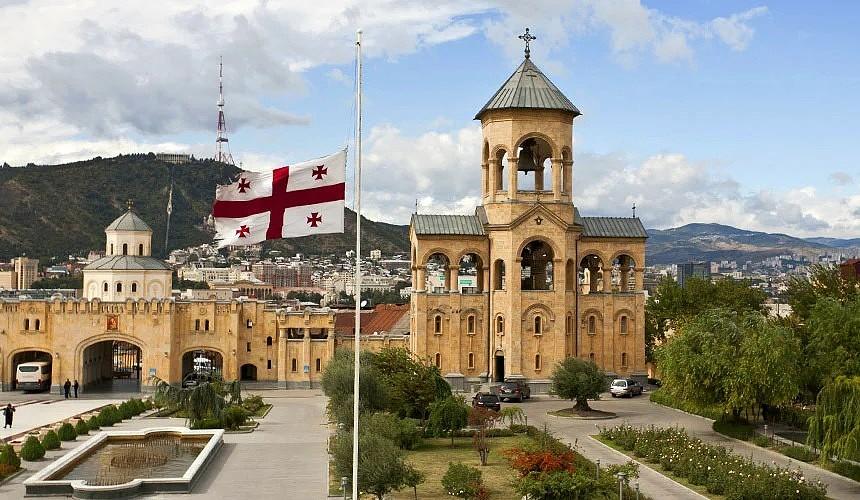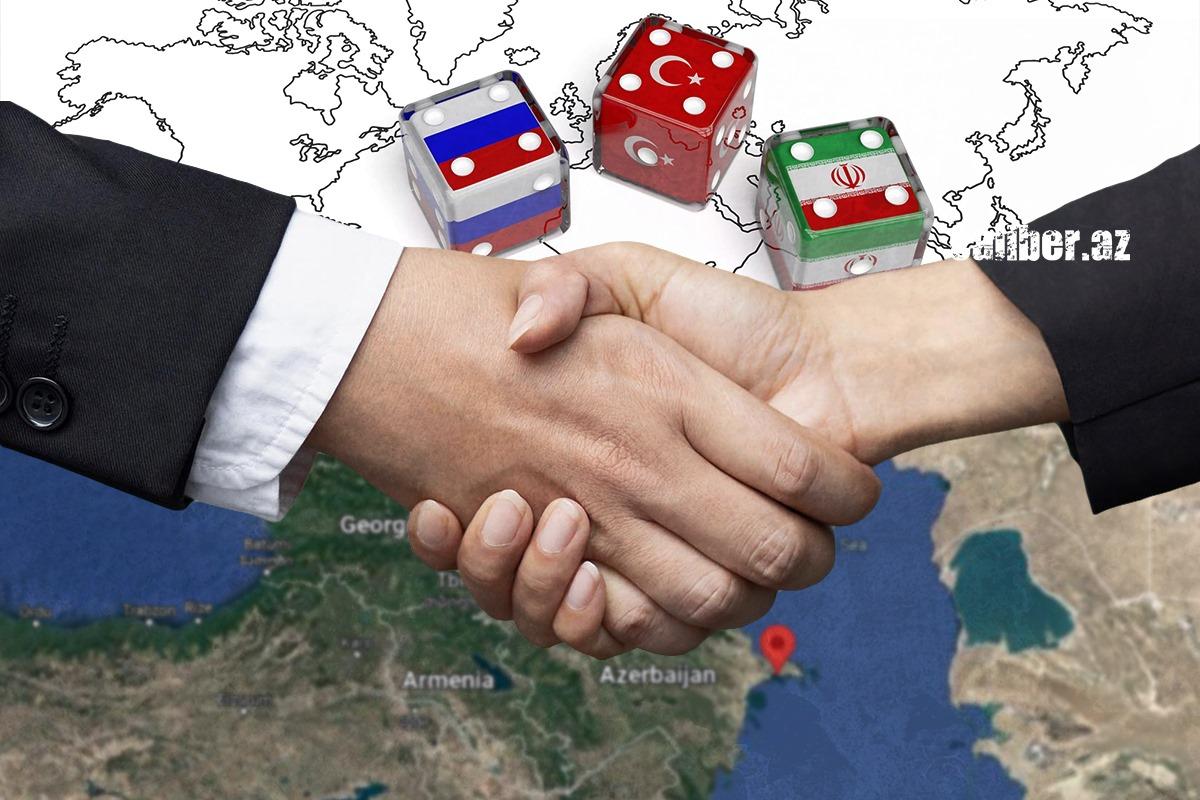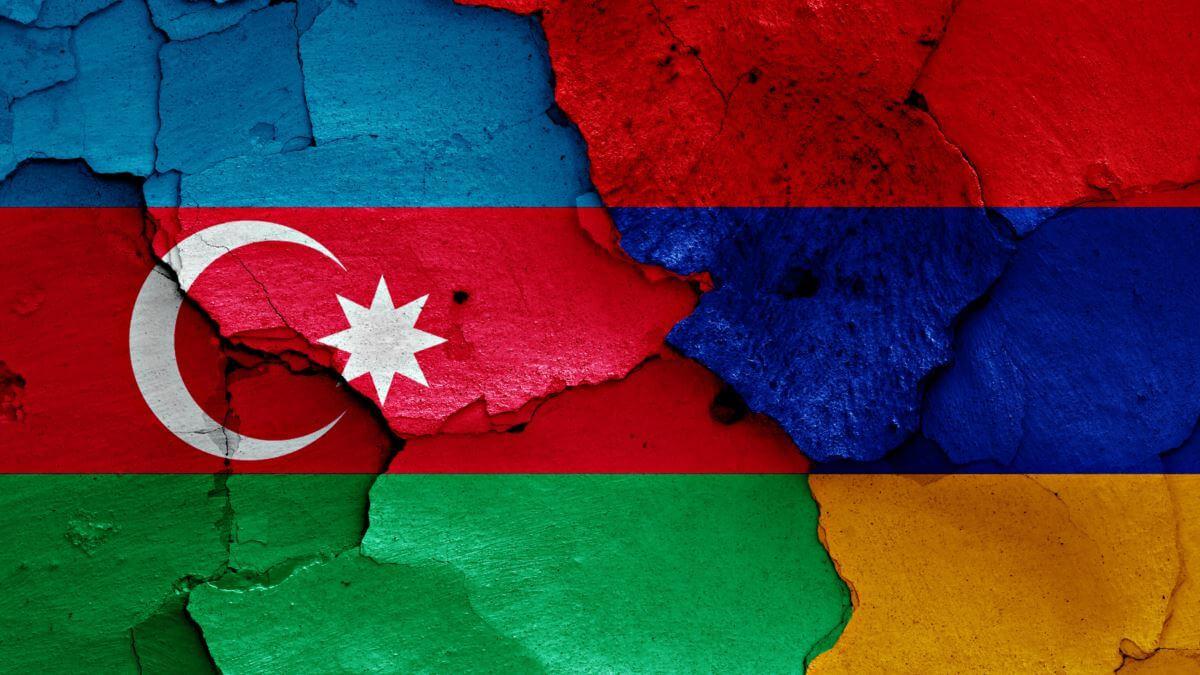Expert: Path to NATO disastrous for Georgia Caliber.Az from Tbilisi
Caliber.Az presents an interview with Candidate of Political Sciences, political scientist, Head of the Institute of Eurasia (Georgia) Gulbaat Rtskhiladze.
- How do you assess the Georgian government's foreign policy course?
- The foreign policy course of the Georgian Dream is quite contradictory, however, in the light of the Ukrainian events, as well as the situation that has arisen in connection with them in the entire Black Sea region, this course can be assessed as quite pragmatic and cautious. Of course, it needs correction and qualitative improvement, but nevertheless...
- Georgia has problems with territorial integrity. Is the Georgian leadership doing anything to return the occupied territories?
- We had an ethnic conflict with Russia, which became the reason for military actions in Georgia. Abkhazia and South Ossetia are now territories beyond our control. However, this is, of course, the Georgian legal field - these lands legally and historically belong to Georgia. We must reintegrate them and restore the territorial integrity of the country, and the unity of the peoples – Georgians, Abkhazians, Ossetians. But to do this not by force, but gradually, step by step, restoring trust between our Caucasian peoples. This is possible through Russia's mediation and goodwill. Moscow has repeatedly signalled the presence of such goodwill. Yes, it will be a difficult process, but peaceful, which will lead us to a denominator that will be acceptable to all parties.

- Do you think Georgia needs NATO membership?
- The course toward NATO is disastrous for Georgia. Shevardnadze's decision that the country would start knocking on the doors of the alliance was wrong - we thereby challenged Russia, and in return, we received nothing from the West. That is, Georgia became an irritant in the South Caucasus, which led to discord in relations with Moscow, which grew and eventually resulted in the 2008 war. Georgia has lost and is losing a lot from the breakdown of relations with Moscow in political terms because the country is a hub for the entire South Caucasus - Armenia with Russia, Azerbaijan with Türkiye and the Black Sea region are connected through Georgia's territory. Georgia is an important transit country on the scale of the Caucasus and the entire Silk Road.
But Tbilisi is very clumsily using its trump cards, and this is due precisely to the fact that our country unilaterally refused any kind of cooperation with Russia. Yes, perhaps there are grievances due to the fact that Moscow is helping Ossetia and Abkhazia, but this is a big policy, and we must proceed from realities, not wishes and conclusions. In such a situation, Georgia should not harm itself, it should proceed from its own interests. And she can do it. After all, when the United States began to put pressure on our government, it immediately bristled in front of the Americans. I mean, we need to approach any international problem in a balanced way.
- South Ossetian separatist leader Gagloyev froze the "referendum" on the unification with Russia. Do you think Moscow is putting pressure on Tbilisi's foreign policy in this way?
- The "independence" of South Ossetia is a very conditional concept, it cannot exist in isolation, it is almost completely determined by Russia. The same is true with Abkhazia. But for the Kremlin, it is a subject of international law, Russia sends ambassadors there.
Most likely, Gagloyev's decision is really connected with Moscow, which, in the person of diplomat Grigoriy Karasin and Georgia's special representative for relations with Russia Zurab Abashidze, said that she was not interested in this "referendum" and would not support it. In the end, it turned out that way.
In other words, Moscow has clearly marked the line - Tskhinvali realised this and made the appropriate decision.

-What is your assessment of the Azerbaijan-Türkiye-Georgia cooperation format?
- This is excellent cooperation if it is not directed against a third party. At the same time, the format should include not only Azerbaijan, Türkiye and Georgia, but also Russia, Armenia, and Iran. Everyone has already taken part in it, except Georgia.
- As I understand it, you mean the "3+3" format?
- Yes, I believe that Georgia's foreign policy course should change in this direction so that our country becomes a full-fledged participant in this format.
Our former foreign minister was against such an alliance, but now he has left, and our government has become more united. I hope that over time it will be understood that Tbilisi should participate in the "3+3" format.
- How do you assess the current level of Azerbaijani-Georgian relations?
- No matter how the Azerbaijani-Armenian relations develop, Tbilisi will be indispensable for Baku and Yerevan. Conversely, Azerbaijan is also indispensable for Georgia, it is a very valuable and reliable partner. There are some serious problems between our countries, but they are being resolved peacefully, through negotiations.

- How do you feel about the possibility of peace between Azerbaijan and Armenia?
- Georgia will welcome the very fact of reconciliation between Baku and Yerevan, because representatives of both peoples live in our country, and quite peacefully. Our citizens should live in peace regardless of their national and religious affiliation, which, in turn, will strengthen stability in our region.
Peace between Baku and Yerevan is possible. Azerbaijan was indeed discriminated against, and suffered for a very long time, but the issue was not resolved in any way. In the end, its patience simply snapped, and President Ilham Aliyev, having launched an operation to liberate the occupied territories of Karabakh, justified it. He did not say that Baku wants bloodshed and hates Armenians, he only declared the failure of the negotiation process. The Azerbaijani president had the full legitimate right to do this. People did not die for their homeland in vain, because the result was achieved.








